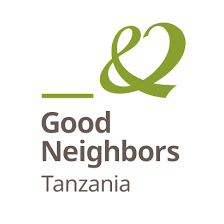
Consultant For The Evaluation of The Boresha Elimu Mbozi
Job Role Insights
-
Date posted
2025-04-10
-
Closing date
2025-04-10
-
Hiring location
Tanzania
-
Career level
Senior
-
Qualification
Bachelor Degree Master’s Degree
-
Experience
10 Years
Job Description
Table of Content
| Section | Title | Page |
|---|---|---|
| 1 | Background information and context. | 2 |
| 2 | Purpose of the evaluation | 2 |
| 3 | Scope and focus of the evaluation. | 2 |
| 3.1 | Evaluation questions | 3 |
| 3.2 | Evaluation methods. | 3 |
| 4 | Schedule and Deliverables... | 4 |
| 4.1 | Structure and length of the final report. | 4 |
| 5 | Role and responsibilities. | 4 |
| 6 | Competency profile of the evaluator(s) | 4 |
| 7 | Budget | 5 |
| 8 | Guiding principles and values. | 5 |
List of Abbreviations
| Abbreviation | Full Form |
|---|---|
| 3Rs | Reading Writing and ARithmetic |
| BEM | Boresha Elimu Mbozi |
| CRE | Child Right Education |
| OECD-DAC | Organisation for Economic Co-operation and Development Development Assistance Committee |
| PCF | Pestalozzi Children's Foundation |
| PTAS | Parents and Teachers Association |
| PTM | Participatory Teaching Methods |
| RUWASA | Rural Water Supply and Sanitation Agency |
| SMCS | School Management Committee(s) |
| SMTS | School Management Team(s) |
| SHIPO | Southern Highlands Participatory Organisation |
| TOR | Terms of Reference |
| WEO | Ward Education Officer |
1 Background information and context
The Pestalozzi Children's Foundation (PCF) is a Swiss non-profit organisation working worldwide. Our vision is to create a world where children can learn and laugh in peace and freedom. PCF seeks to enhance inclusive and equitable quality education to promote sustainable development and living peacefully together. The PCF Tanzania Country Programme 2025-2028 promotes inclusive and equitable quality education in the poor regions of Songwe and Arusha. The programme targets vulnerable girls and boys in remote, rural, semi-urban areas as well as from minority communities living in the forest, nomadic as well as low wage labourers working in coffee plantations. The programme aims to improve and develop girls' and boys' basic skills from preschool to grade 7 (ages 5-13) to improve learning outcomes. SHIPO the local non-governmental organisation entered into Cooperation Agreement with Pestalozzi Children's Foundation (PCF) to implement the project" Boresha Elimu Mbozi" to improve the quality of Education at Mbozi. Phase one started in 2019 with the aim of improving education across 20 schools. The project addresses key challenges such as inadequate teaching skills, low attendance, high dropout rates, poor school management, unconducive learning environments, poor hygiene and sanitation, low participation of both girls and boys in extracurricular activities, low awareness about child rights and gender equality to parents and the community on the importance of education. Phase two of the project, which began 2023 to 2025 focusing on the outcome to "Improved performance among girls' and boys' students in 30 primary schools in Mbozi district, Songwe region". The project engaged additional 10 schools targeting 278 teachers (112 female, 166 male), 258 school committee members, 19,128 students (9,721 female, 9,467 male), and 4,500 community/parent members (2,360 female, 2,140 male). The project schools were chosen for their low student performance, poor teaching quality, poor attendance, high child rights violation especially for boys who are taken to work in farms and taking care of cows, poor school management, low awareness of parents on importance education, and inadequate infrastructure including classrooms, water and sanitation facilities as well as shortage of furniture.
Purpose of the evaluation
The purpose of the end of Phase II evaluation (2023-2025) is to build a knowledge base for learning and improvement in the next phase. Specifically, the evaluation aims to: 1) To evaluate the performance of project's output and outcomes including both intended and unintended effects that may already be evident. 2) To review the relevance, effectiveness, efficiency and sustainability of the project 3). To derive lessons learned and provide recommendations to guide PCF and SHIPO in designing the third phase. Since the project is in its second phase, the evaluation will also be used to propose and highlight interventions to ensure sustainability after the project phases out.
Scope and focus of the evaluation
The evaluation aims to assess the relevance, effectiveness, efficiency, sustainability and management of the second phase of the project according to the OECD-DAC definitions¹. The evaluation will assess project implementation and its components as part of the Tanzania country programme and in line with the contextual factors such as the national education and training policy, education sector development plan (ESDP) and local education strategies. The evaluation will focus on the ongoing Boresha Elimu project, assessing its implementation and results. The evaluation period is scheduled from April 1st to May 30th, 2025 covering a selected sample of 10 schools out of 30. This sample will include both existing schools from Phase I and new schools under Phase II to ensure a comprehensive assessment. The evaluation will target rural, remote, and semi-rural schools to provide an accurate representation of the project's achievements in diverse settings. Since no control schools were established at the start of the project, the focus will be only on project schools. The evaluation will target girls and boys students, female and male teachers trained in PTM, 3Rs, challenging topics, gender and child rights, as well as education officials at the district and ward levels, school management, and community members involved in the project's contribution.
Glossary of Key Terms in Evaluation and Results Based Managerment
3.1 Evaluation questions
The main evaluation questions that should focus on relevance, effectiveness, efficiency and sustainability of the development intervention are listed below:
A. Relevance
- To what extent did the project address the needs of the students, teachers, and communities, considering the different needs of girls and boys in Mbozi District?
- How aligned was the project with National Education policy and education priorities?
- Is the project still relevant taking into consideration the latest developments in the education sector in Tanzania?
- Gender: To what extent does the project address gender equality in its activities? Have boys and girls equally participated/benefitted in the project? To what extent does the project promote gender equality and tries to address gender equality gaps with its activities (gender positive)?
B. Effectiveness:
- To what extent did the project interventions contributed to improved capacity and competency of students, teachers, school management, school committees?
- To what extent have the planned outputs been achieved and contributed to the achievement of the planned outcome (effectiveness of the logic of intervention)?
- To what extent did girls and boys, female and male teachers, and other targeted groups benefit equally from the project interventions?
C. Efficiency of project implementation
- Are the project resources (financial and human, materials) used efficiently? And were the project resources sufficient to achieve the intended outcomes?
- To what extent have the resources allocated for project interventions considered gender sensitivity and ensured equitable benefits for all groups?
- Did project activities overlap and duplicate other similar interventions? Are there more efficient ways and means of delivering more and better results with the available inputs? Could a different approach have produced better results? How has capacity building to SHIPO conducted by PCF improved the capacity of the project and management staff and the project results?
Sustainability:
- What measures have been taken within the project to ensure the sustainability of the results after the end of the project?
- To what extent has the project build local ownership and capacity to ensure its continuation beyond the external funding phase?
D: Project Management:
- To what extent has the Monitoring and Evaluation system contributed to the project implementation?
- To what extent were key stakeholders (e.g., beneficiaries, local authorities, and partners) actively engaged in the planning, implementation, and decision-making processes of the project?
- To what extent did challenges encountered during project management impact its success, and what lessons can be learned to improve future project planning and execution?
3.2 Evaluation methods
A specific and detailed assessment design should be presented to SHIPO and PCF by the evaluation team based on the following mixed methods of information gathering:
a) Interviews with key informants: i.e. PCF Country Representative; PCF Education Officer, SHIPO General Manager/Project Coordinator, SHIPO's Education Officer and M&E officer, District Education Officers, Ward Education Officers, Social Welfare Officers, School Quality Assurers, Academic Officers, Head Teachers, RUWASA, and other influential people in the community. b) Focus Group Discussions (FGDs) with project's participants: This will include discussions with project beneficiaries for example teachers, parents, children, (boys and girls of different ages); school clubs pupils, school committee members, and child Rights Protection Committees' members. c) Desk review of project/programme documentation: Problem Tree, Log frame, Project Description, monitoring system, annual and semi-annual project report 2023, and 2024; Strategic & Annual Action Plan 2023, 2024, 2025; Financial Plan and Financial Report 2023, and 2024, and Cooperation Agreement Phase II; and d) Participants /Classroom/ Site Observation e) Survey: Survey Questionnaire to Government officials (DEO, WEOSWEOS, Child Desks Officer, Social welfare and Community Development officers.)
Schedule and Deliverables
| Step | What | Until when |
|---|---|---|
| 1. | Submission of proposal | 14 April 2025 |
| 2. | Selection of the candidates | 17 April 2025 |
| 3. | Signing the contract and finalising the ToR | 22 April 2025 |
| 4. | Submission of the inception report | 30 April 2025 |
| 5. | Organising the data collection (schedule and development of tools) | 09 April 2025 |
| 6. | Data Collection | 23 May 2025 |
| 7. | Draft evaluation report | 26 May 2025 |
| 8. | Final evaluation report | 13 June 2025 |
| 9. | Submission of Final report | 27 June 2025 |
| 10. | Presentation of the final evaluation report to PCF and Operational Partner | 11 July 2025 |
Structure and length of the final report
The final evaluation report should be submitted in English. It should not be longer than 20 pages (excluding annexes and executive summary). The final evaluation should contain an executive summary of no more than 2 pages that includes a brief description of the project, its context and current situation, the purpose of the evaluation, its methodology and its main findings, conclusions and recommendations. The structure of the report should follow the structure of the executive summary. Three signed copies of the final version of the report along with a digital version have to be submitted to SHIPO and PCF.
Role and responsibilities
- PCF: In collaboration with SHIPO, PCF will oversee the entire project evaluation process through to its final stage.
- SHIPO: the organizer of evaluation in the field and participating in evaluation; develop ToR in collaboration with PCF. SHIPO support the dissemination of evaluation report.
- Evaluator/evaluation team: Preparation of evaluation proposal (including inception report and budget, elaboration of data collection tools) conducting the evaluation, drafting evaluation report, and finalization of the report based on received comments and presentation of the report to SHIPO.
Competency profile of the evaluator(s)
- Tanzanian with relevant academic background (Degree or relevant preferred).
- Demonstrated experience and expertise in the design and undertaking of project and programme evaluations using participatory M&E methodologies in a gender-sensitive way.
- Knowledge and expertise of the education sector in Tanzania and background in literacy training/curriculum development, gender and child protection is desirable.
- Excellent analytical, interpersonal and communication skills.
- Fluent in English and Swahili.
- Willingness and ability to work in the relatively remote and rural location of Mbozi District and understanding of the realities of data collection in remote and resource poor settings.
- Proven track record in developing and conducting various types of evaluation of education projects including qualitative and quantitative data collection and analysis using participatory tools and approaches.
- Eligible consultant is encouraged to apply through electronic applications.
- Willingness to sign the Code of Conduct and adhere to the Child Safeguarding Policy.
7 Budget
A detailed budget should be included in the proposal and stipulate how many person-days are given for studying the documentation, field visits, reporting etc. Other expenses to be calculated include enumerators, transportation, meals, accommodation and dissemination.
8 Guiding principles and values
The evaluation team should adhere to the United Nations evaluation norms and standards and ethical guidelines for evaluation². The individual consultants/team or institution that will work on this project must demonstrate personal and professional integrity during the whole process of the evaluation. He/she/the team must respect the right of institutions and individuals to provide information in confidence and ensure that sensitive data cannot be traced to its source. Further, the team must respect ethics of research while working with children including using age appropriate consent forms, age appropriate data collection, and principle of do no harm. Furthermore, the team and its members must take care that those involved in the evaluation have an opportunity to examine the statements attributed to them. The evaluation process and consultants must be sensitive to beliefs, manners, and customs of the social and cultural environment in which they will work. Especially, the consultants must be sensitive to and address issues of protection, discrimination and gender inequality. Furthermore, the consultants are not expected to assess the personal performance of individuals and must balance an assessment of management functions with due consideration of this principle. Finally, if the consultants or team uncover evidence of wrongdoing, such cases must be reported discreetly to the appropriate investigative body.
Interested candidate can submit both technical and financial proposal to [email protected], with copy to [email protected] and [email protected] by 14th April,2025.
This is a re-advertisement. If you have already applied in response to the previous announcement, your application is still under consideration, and there is no need to reapply.
If you do not hear from us within two weeks after the application deadline, please consider your application unsuccessful.
Interested in this job?
0 days left to apply
Share this opportunity
Help others find their dream job


